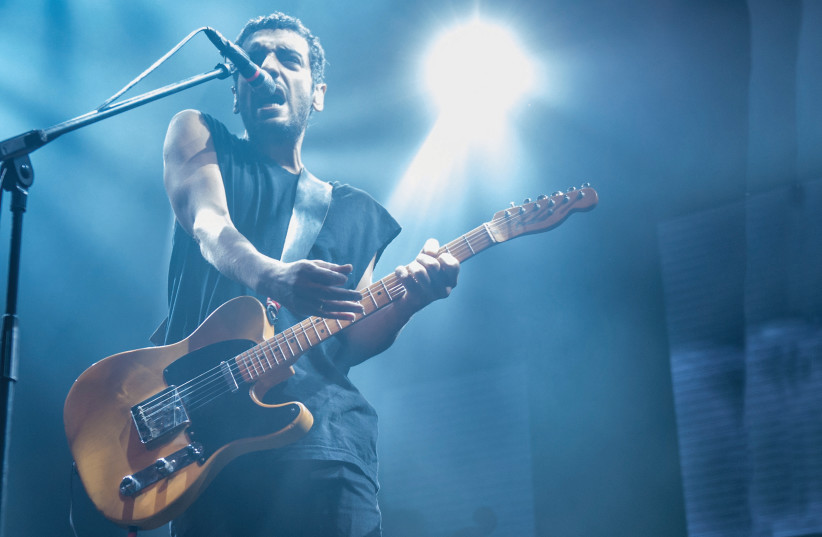(JTA) - The musician Jonny Greenwood was pushing back on critics who said he should abandon a plan to tour with an Israeli collaborator because of the Israel-Hamas war.
Greenwood and Dudu Tassa, an Israeli rock star from a prominent Mizrahi musical family, were scheduled to perform together on the European festival circuit this summer, a year after they released a joint record that featured singers from across the Middle East. Some of the dates were rescheduled after the pair canceled shows in the immediate wake of Hamas’ October 7 attack on Israel.
The performances are drawing criticism amid widespread anti-Israel sentiment in the arts and in Europe, and Greenwood has faced calls to cancel.
In a statement posted to social media on Tuesday, he said he would do no such thing - and said that calls to silence Israeli artists are counterproductive.
“Others choose to believe this kind of project is unjustifiable and are urging the silence of this - or any - artistic effort made by Israeli Jews,” Greenwood wrote. “But I can’t join that call: The silencing of Israeli film makers/musicians/dancers when their work tours abroad - especially when it’s at the urging of their fellow western filmmakers/musicians/artists - feels unprogressive to me, not least because these people that are invariably the most progressive members of any society.”
Greenwood’s relationship to Israel is long. He is married to Israeli visual artist Sharona Katan, who has said the family identifies as Jewish, and recorded guitar on albums by Tassa and fellow Israeli Shye Ben Tzur before making the album with Tassa. Both artists opened for Radiohead on some tour dates in 2017.
Music unites against boycotts

Tassa is the grandson of Daoud Al-Kuwaity, one of the most famous Iraqi composers of the 20th century who emigrated to Israel in 1951. In his statement, Greenwood notes that the songs of Al-Kuwaity and his brother Saleh “are still staples of Arab-wide radio stations - though sadly their heritage as Jews is never mentioned.”
Radiohead, which won several Grammy Awards and sold millions of records since the 1990s, have been the targets of the boycott, divestment and sanctions movement against Israel, especially in the lead-up to their 2017 concert in Tel Aviv. In response, lead singer Thom Yorke called BDS protesters “offensive” and “patronizing,” adding, “The person who knows most about these things is Jonny.”
In an Instagram post this week, Tassa called Greenwood “an amazing person who is always willing to take risks for peace and justice” and a dear friend.
“Our desire and choice as musicians from different backgrounds (he is an English rocker and I am a Jewish-Israeli who absorbed roots of Arab culture) have always been and will continue to be, to strive to understand the ‘other,’ to get to know him and to introduce him to us through the language of music - completely the opposite of fostering a one-sided discourse of boycotts and threats,” Tassa wrote.
“The truth is that the boycotters and condemners do not promote anything - just more hatred,” he added. “I hope and wish that together our performance will unite and connect people from different backgrounds and be part of a small step towards a better future.”
Greenwood did not explicitly mention the war, the Palestinians or Gaza in his statement, angering some of his critics. But he acknowledged that his planned performances with Tassa come at a difficult time.
“No art is as ‘important’ as stopping all the death and suffering around us. How can it be? But doing nothing seems a worse option,” he wrote. “And silencing Israeli artists for being born Jewish in Israel doesn’t seem like any way to reach an understanding between the two sides of this apparently endless conflict.”
